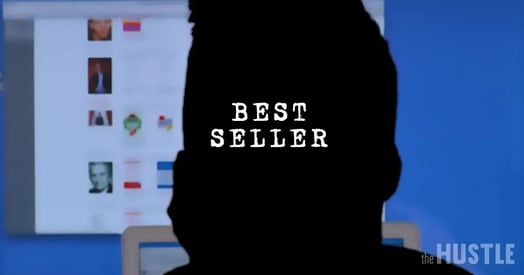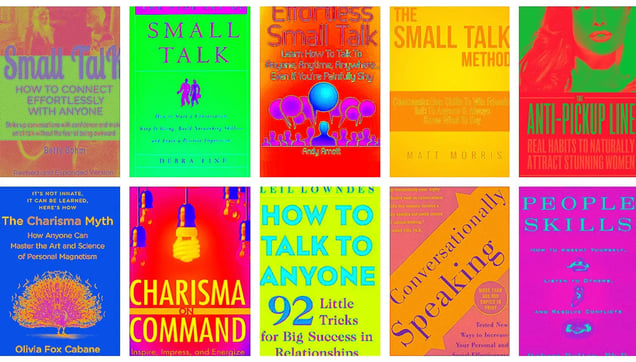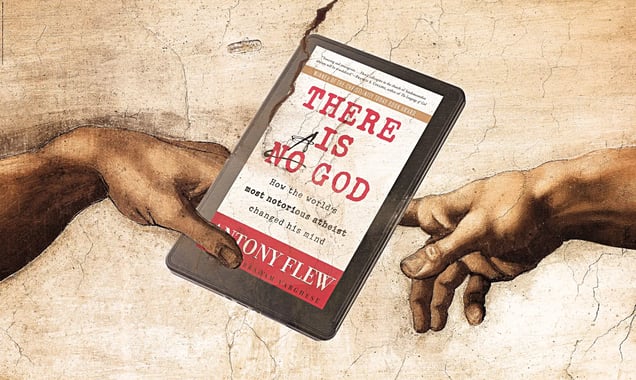This month’s theme for The Hustle is people who game the system. This is the first of the weekly series.

The Secret World of Kindle Gold Rushers
So there’s a group of people who make a living churning out dozens of lowbrow Kindle books a month. I call them Kindle Gold Rushers. Some of them make hundreds of thousands of dollars selling ebooks on niche categories.
In this week’s story, we hear from one of the top selling Kindle Gold Rushers. He’s 26 years old, sells 6,000 books a month, and nets $150,000+ a year.
On the surface it’s a badass story of success: a young professional quits his job, becomes a self-published author, and earns six figures per year. Except for one thing: he doesn’t actually write the books he publishes. Instead, he has a team of outsourced writers and creatives who pump out dozens of books a year to game Amazon and dominate various book categories.
Part of me (about 95%) is disillusioned by this story, while the other part is pumped. One of my favorite books is Walden. Henry David Thoreau locked himself in a cabin for two years to create this masterpiece. That’s badass. But then, to see the guy in our story make a ton of money selling “eh” books, the hippie inside me thinks that’s f-ed up.
But the capitalist part of me? He’s jacked up and already scheming a way to become a rich as hell Kindle “author.”
But hey, there’s plenty of room in this world for both Hoobastank and The Beatles…so who am I to judge.
So here it is, without further ado: one man’s story of how he became a Kindle Gold Rusher.
Notes #2: We don’t reveal the author’s identity on purpose as to not screw him over.

The Strange Life of a Self-Help Author
Before my life as a semi-famous, best-selling self-help Kindle author, I was an corporate cog in the wheel with a meaningless graduate degree. I was grinding out 70 hours a week in an office with no sunlight, focused on becoming a senior associate and eventual partner.
By the time I was 24 years old, I was bored and unhappy. Something had to change in my life. After reading an article on Kindle authors and how their income was pretty much passive after the book launched, I thought, “What the hell. Maybe I should give writing a try.”
After checking out the self-help section in the Kindle store, I noticed how godawful the writing was. I couldn’t tell if someone had outsourced their book to a non-native English speaking writer (which is common), or if it was actually someone’s legitimate effort at a book. I was shocked that anyone (a) put this stuff for sale, and (b) the books actually sold.
For example, here’s an excerpt from a top-selling Kindle book:
“The way that we must use coconut oil is to use it with the best of intentions. If you do not, you will not benefit fully from usage of the said coconut oil. Were you to not use or eat the coconut oil, don’t worry there are many more uses for the coconut oil you will see!”
Clearly the bar was low. I knew I could kick their asses even without experience writing and publishing a book.
How I Wrote My First Book
Before writing, I created a three-page outline based on the tables of contents I had seen in other books. My first book was 18,000 words (40 pages). It was on how to be more persuasive, something that I know quite well. It took two weeks to write.
Since it was non-fiction, I didn’t have to fact check or cite anything/anyone, which was one of the reasons it only took two weeks to write. That’s the beauty of writing self-help books (and why it’s easy to game) – there’s never really a wrong answer.
After writing the draft, I had a cover made on Fiverr. A graphic designer in the Philippines created what I wanted for $5. Then I uploaded the book to the Amazon Kindle store.
11 copies sold the first month and 30 copies the second, netting 35 cents from each sale. The sales came organically from the Amazon search. Not much, but I enjoyed the prospect of being a published author, so I kept writing. After all, whose first effort ever hits the mark? I applied everything that I had learned about the process to my following books.

Making the Paper
I wrote 8 books within a few months, all on similar topics. Two of them were each making $1,000 a month, and I was netting over $4,000 per month from Amazon. I literally did nothing to get a sale after the initial writing and launch. Too easy. It was a fucking gold mine. I wasn’t even working hard on them. Plus, since Kindle sales are all about the cover and book description, I studied copywriting, which helped a ton. Oh, and the content is important too (kinda)…
My progress was pretty fucking amazing (I’m just as shocked as you are), but I was spending a ton of time — about two weeks — writing and editing each book. I’d heard that a ton of other Kindle authors hired ghostwriters so they could churn out a dozen books a month. To scale up my process and start making real dollars, I needed one myself.
You’d be shocked how many of your favorite authors use ghostwriters (here’s a list). And after looking at some of my reviews, I can see why it works.
The Secret to Making $10,000+ a Month: Ghostwriters
Surprisingly, I found my ghostwriter on the spammiest forum on the web: Warrior Forum, a message board for sketchy internet marketers. I tried eLance and Craigslist, but Warrior Forum was the winner. I was only making $3000 a month, so I couldn’t afford a premium ghostwriter, which costs around $1000 per book. Plus, the actual writing wasn’t that important. If you look at my Amazon reviews (the real ones, not the ones I paid for), people don’t give a shit about the writing itself, as long as I show them how to solve the problem they have.
I auditioned 8 writers by sending them an outline for a book. They sent back 2,000 word essays. The person I chose deviates as he pleases to fit his vision of my outlines, which I like. He has great English, can fill space (which is all I need), and most importantly, he lives in the Philippines, which means he’s cheap. For $150 per book, I send him a 2,000 word outline and 7 days later he sends me a 20,000-word book. I spend about a week editing those 20,000 words It’s that easy.
I make (net) around $1,000 each month per book. Again, I know what you’re thinking…too easy. Plus, having a ghostwriter allows me to publish books on virtually any subject. For example, after noticing a hole in the DIY market, I wrote an outline my ghostwriter turned into a 40-page book on gardening that started selling really well.
At this point I’m an outline creator, cover designer, copywriter, internet marketer, and editor.
Do I know anything about those topics? Hell no — but I make a hell of a lot of money pretending I do. Plus, even the best “authors” use ghostwriters…it’s just one of those dirty little secrets.
How to Come Up With Book Ideas
I’ve made thousands of dollars selling books on topics I’m clueless about. Hell, I have a best-seller on gardening, an activity I’ve literally never done. These books are only about 20 pages and simple to create. I find books that are selling well, check out their tables of contents, look at the negative reviews to see what they missed, and then do a little research on the web. I create a 20 chapter outline, filling each chapter with 4-5 bullet points about main ideas, angles to explore, and specific things to mention. Once I have an outline, I send it off to the ol’ ghostwriter. one week later, I get my manuscript.
Here’s an example of one of my outlines.

If you want to make a lot of money gaming Kindle, the book’s content is the least important part of the process.
My books don’t always hit best-seller status, a mostly dubious term, but the vast majority do. Replicating other people’s success is the best way to guarantee it. It only took a few months to master the self-help market, so at this point I just make what I know my audience will buy.
By the way, when most self-published authors brag that they are a best-seller, it technically means that they have reached the #1 spot in any category, no matter how small. And they are usually tiny categories, and only for a couple of hours. You can sell, or even just give away, 50 books and BAM — best-seller. There’s even a nice little “best-seller” badge that you can find on Amazon that many authors paste onto their book cover after the fact.
Makes you question when someone calls themselves an “expert”.

Creating The Outline and Cover
My covers are actually almost universally praised, which is hilarious to me, because they all cost $5. Yes, $5. Thank you Fiverr.com. This means that my first few books, before the ghostwriter, cost literally $5 and my time.
Covers do, however require a good eye for design, which I’ve developed by scanning through the Kindle store for hours a day. You learn what catches people’s eyes in an instant, and what marks a poorly selling self-published book.
The key to creating a cover is bold lettering, strong contrasting colors, and a sexy image. That’s it. I don’t get clever, I just make the thumbnail stick out. Amazon is the platform for impulse buys.
These days, it costs me a $5 cover and a $150 manuscript from my ghostwriter to publish a book – not a bad margin.
How to Game Reviews
On Amazon, reviews are king.
After publishing a book, Amazon gives you the option of giving it away for free for up to 5 days. This is when I used to send the book to 20 friends to review. I’d write each review for them, so all they had to do is copy and paste.
This worked well, but it was also a pain in the ass, so I recently started paying someone to find reviewers for me.
I found my fake reviewer on Craigslist after I posting an ad looking for a content writer. He ended up being a part of some kind of review circle that I still don’t really understand, but I pay $3 per review that he gets me. However, there are tons of sites that do this.
Do I directly pay for positive reviews? Ehh, it’s a thin line, I pay people to “read” my books and hopefully they’ll review it. The reviews just always happen to be positive.
Get You Some
It’s probably important to mention that I’m one of the best Kindle authors. If I make it sound easy, it’s because I kick ass at the processes required to market a book. Plus, I don’t give a shit what people think about me and have no problem creating smut. So I guess that helps. Thousand of authors have tried to do what I have, and failed miserably. I’m not being arrogant about it, it’s a quantifiable fact.
A note from The Hustle
To prove whether this anonymous’s author word is legit, we spent the last week gaming Amazon and trying to become a bestseller in one week. Here are the results.
